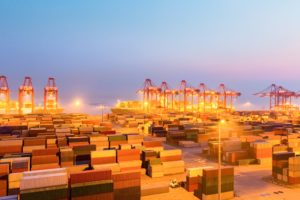In anticipation of a surge in demand for critical raw materials (CRMs) due to the EU’s green and digital transition, the European Commission has introduced new legislation to secure the future supply of CRMs in Europe.

The Critical Raw Materials Act will identify ‘strategic projects’ along the supply chain and focus on extraction, refining, processing and recycling CRMs to decrease dependence on countries, particularly China, that dominate CRM supply chains.
CRMs are specific minerals that are economically and strategically important for modern economies. Materials like magnesium, lithium and gallium are increasingly crucial for renewable technologies, aerospace, consumer electronics and the automotive sectors. According to a study commissioned by Eurometaux, the EU alone will need 35 times more lithium and over three times more cobalt within the next twenty years.
‘As you all know, today the European Union depends heavily on a few third countries for these strategic raw materials,’ said European Commission President Ursula von der Leyen in her speech last week at the European Parliament. ‘The pandemic and the war have taught us a bitter lesson about overdependencies,’ she continued. ‘So, if we want to be independent, we urgently need to strengthen and diversify our supply chains with like-minded partners.’
Indeed, the EU currently gets 98% of its rare earth supply from China, as well as 93% of its magnesium and 97% of its lithium. However, a few European-funded projects are already addressing this issue, such as Sea4value and SEArcularMINE, both of which involve extracting CRMs from seawater brine, and SALEMA, which focuses on recycling aluminium, silicon, and magnesium for the electric automotive industry.
In particular, Sea4Value is looking at novel technological solutions to extract ten different minerals and metals directly from seawater brine in a multi-modular process. Seven of these are CRMs, according to the current EU definition, such as magnesium, lithium, scandium and gallium. By the end of the year, Sea4Value is expected to set up a test laboratory in Tenerife. The process is expected to enable the plant to recover, among many other minerals, between two and three grams of magnesium per litre of brine. This is keeping in mind that millions of litres of brine are produced daily in desalination plants worldwide.
Brine is one of the main waste products of desalination plants. It usually gets discarded – potentially causing environmental problems in the marine environment if not disposed of correctly. According to Sandra Meca Fàbrega, technical project manager of Sea4Value, these results could allow Europe to reduce its dependence on imported raw materials. In short, she explains, it will help diversify the sources of CRMs and secure the supply of these materials, potentially even increasing the competitiveness of EU companies.
This is not necessarily a new approach. Several countries, including Australia, Canada, the USA and the Arab Emirates, are already working on valorising their brines from existing desalination activities. This could soon shift the market to the minerals contained in seawater. In contrast to deep sea mining for minerals like cobalt, manganese or rare earth elements, this technology would not harm the seabed. Instead, it would utilise wastewater already produced in one of the 17 thousand desalination plants worldwide.
As of now, it’s safe to say that the solution to our dependencies won’t likely come from one single strategy but rather from the combined approach of several different solutions, including trade with like-minded partners and new technologies. Of course, it’s impossible to guarantee that Europe won’t trade one dependency for another in the future. However, the Critical Raw Materials Act, for the moment, indicates a commitment to independence and a plan for Europe’s future.
The post How EU-funded projects aim to secure the supply of critical raw materials appeared first on Sea4value.